We know that there are proper nouns, and we know that we use capital letters for proper nouns. But there is another group of words in English that we capitalise, and they are called proper adjectives. Never heard of them? Don’t worry: most people haven’t. Proper adjectives are like the long-lost cousin of proper nouns, and they are formed from proper nouns.
Most proper adjectives are formed from the names of places or people:
- a French poodle (from France)
- a Ukrainian victory (from Ukraine)
- Balinese batiks (from Bali)
- an Elizabethan painting (from the time of Queen Elizabeth I)
- an Edwardian house (from the time of King Edward VII)
- a Benedictine monastery (in honour of Saint Benedict)
- the Pauline doctrine (from the Apostle Paul)
Some proper adjectives are formed from the names of companies or trademarked items, but they are usually in the form of an adjectival noun, rather than being a different word:
- a Google search
- a Skype call
- Velcro fastenings.
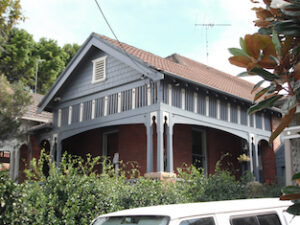
An Edwardian house
When to capitalise proper adjectives
This is the only tricky thing about proper adjectives. Mostly, they are capitalised but there are a few that have become so common or have been around for so long that their original association with a place or person has been lost, and so has the capital letter. We refer to German shepherds and old English sheepdogs but border collies have lost their association with the Border region (between England and Scotland) where they came from. We have both Seville oranges and Valencia oranges, and the strange Jerusalem artichokes, which have nothing to do with Jerusalem but whose English name is thought to be a mangling of the Italian word for this North American vegetable: girasole. But brussels sprouts have lost their capital letter and thus loosened their association with the capital of Belgium (perhaps Brussels doesn’t wish to be associated with these revolting little cabbages; I certainly wouldn’t blame the good citizens of that town).
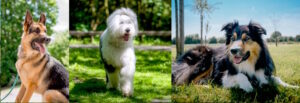
While German shepherds and old English sheepdogs retain their proper adjectives, border collies have lost their capital
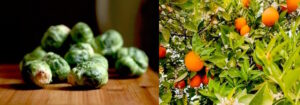
The dwarf cabbages known as brussels sprouts have lost their capital letter but Valencia oranges have kept theirs
These adjectives that have lost their capitals have in fact ceased to be proper adjectives and become ordinary adjectives. There is no way to predict whether a proper adjective is still capitalised: the only way to check is to look up the particular word in a dictionary (and sometimes dictionaries may differ). These are some common examples of proper adjectives that have become ordinary adjectives:
- venetian blinds (from Venice)
- a caesarian section (from Julius Caesar)
- a band-aid solution (Band-Aid was a particular brand of adhesive bandages)
- linoleum flooring (Linoleum was invented by an Englishman in the mid-nineteenth century)
- cellophane wrapping (Cellophane was invented by a Swiss chemist in the first decade of the twentieth century).

A classic example of a proper adjective that has evolved into an ordinary one is venetian blinds
Peoples, languages and non-national place names
Names for nationalities or other groups of people and their languages, although they look proper adjectives have evolved into being nouns. A German speaks German uses German as proper nouns, while A German child speaks the German language uses exactly the same words as adjectives.
Some place names do not change when they are used as proper adjectives. Predicting which ones stay the same depends a bit on the type of word: place names ending in vowels (Victoria, Australia) are easy to change to an adjectival form (Victorian, Australian) while multi-word place names, particularly those that end in consonants, tend not to change: New South Wales, New Zealand. Most names of countries do have an adjectival form for the name of their people or language; smaller regions may not.

The Australian prime minister, Anthony Albanese, with the New Zealand prime minister, Jacinda Ardern: two different types of proper adjectives
Place names that are not used as country names are often used as adjectives but most of the time, these place names do not have a separate adjectival form. They probably could be considered as adjectival nouns, but that’s a debate for the experts . . .
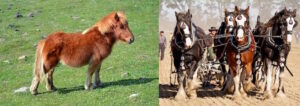
Shetland ponies and Clydesdale horses are examples of place names used as adjectives without a special adjectival form
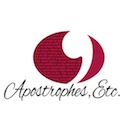
If you have found this post interesting, you can find a full index to my other posts on the index page. To be notified when I post a new topic, follow me on Facebook! If you have any particular questions you’d like me to answer in future posts, just send me a message. I’m always interested to learn what people think, and how you came across this site, so please post a comment.
If you think you would be interested in either my complete grammar course or an individual customised online course (particularly suited for people who don’t live in Melbourne), just click your preferred option.
Images: Edwardian house by Ruwoltj on Wikimedia Commons, licensed under the Creative Commons Share Alike-Attribution 3.0 Unported licence; German shepherd by Shayna Douglas, old English sheepdog by Ben Griffiths and border collie by C Perret, all on Unsplash; brussels sprouts by Keenan Loo and oranges by by Hayffield L, both on Unsplash; venetians by Ruan Richard Rodrigues on Unsplash; prime ministers by Anthony Albanese on Wikimedia Commons, licensed under the Creative Commons Attribution-Share Alike 4.0 International licence; and the the Shetland pony and Clydesdale team are both in the public domain and on rawpixel.com